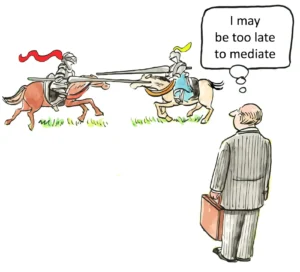Why Is It Important to Seek Medical Treatment Immediately After an Accident?
When you’re involved in an accident, whether it’s a car collision, a slip and fall, or another unexpected incident, the immediate aftermath can be chaotic and stressful. Amidst the confusion and adrenaline, one of the most critical steps that should not be overlooked is seeking medical treatment immediately after an accident. This is not just crucial for your health and well-being but also plays a significant role in any personal injury claim you may need to file. Prompt medical attention helps ensure that injuries are properly documented, your recovery is on track, and your legal rights are protected. Understanding why timely medical care is so important can help you make the best decisions in the moments following an accident.
The Health Benefits of Immediate Medical Treatment
The primary reason to seek medical treatment immediately after an accident is to protect your health. Even if you feel fine right after the incident, there could be underlying injuries that aren’t immediately apparent. The shock and adrenaline rush following an accident can mask pain and symptoms, leading many to believe they are uninjured when, in fact, they may have serious injuries.
Identifying Hidden Injuries: Some injuries, like whiplash, concussions, or internal bleeding, may not show symptoms immediately but can become more severe if left untreated. Whiplash, for example, is a common neck injury that may not manifest symptoms until days after the accident. Concussions can cause long-term cognitive issues if not addressed promptly. Internal bleeding is particularly dangerous because it can be life-threatening if not treated immediately. Getting a medical evaluation right after the accident helps identify these hidden injuries early, allowing for quicker and more effective treatment.
Preventing Complications: Immediate medical care can prevent minor injuries from becoming major health issues. For instance, a simple bruise or cut could become infected if not properly cleaned and treated. Similarly, untreated fractures can lead to improper healing, chronic pain, or long-term mobility issues. By seeking prompt medical attention, you can reduce the risk of complications and ensure a smoother recovery.
The Legal Implications of Delayed Medical Treatment
Beyond health concerns, there are significant legal reasons for seeking immediate medical care after an accident. In the context of personal injury law, the timing of your medical treatment can have a substantial impact on the outcome of your case.
Establishing Causation: One of the fundamental elements of a personal injury claim is proving that the accident directly caused your injuries. If there is a delay in seeking medical treatment, insurance companies and defense attorneys may argue that your injuries were not caused by the accident or that they are not as severe as claimed. Immediate medical attention provides a clear link between the accident and your injuries, making it harder for insurance companies to dispute the cause of your injuries.
Mitigating Damages: In personal injury law, plaintiffs have a duty to mitigate, or minimize, their damages. This means taking reasonable steps to reduce the impact of injuries and avoid worsening their condition. Failing to seek medical care promptly can be seen as a failure to mitigate damages, which can negatively affect the compensation you receive. Insurance companies might argue that your injuries worsened because you did not seek timely medical care, reducing the amount of compensation they are willing to offer.
How Medical Records Impact Personal Injury Claims
Medical records play a pivotal role in personal injury claims. They provide detailed documentation of the injuries sustained, the treatments administered, and the prognosis for recovery. These records are critical when negotiating with insurance companies or presenting your case in court.
Documenting Injuries and Treatment: Medical records serve as official documentation of the injuries you sustained in the accident and the treatment you received. They include doctors’ notes, test results, X-rays, and other diagnostic tools that provide a comprehensive picture of your injuries. This documentation is crucial for proving the extent of your injuries and the necessity of the treatment you received.
Supporting Your Claim for Compensation: The more detailed your medical records, the stronger your claim for compensation. These records help establish the severity of your injuries, the cost of your medical treatment, and the impact on your ability to work and perform daily activities. They also provide evidence of pain and suffering, which can be factored into your compensation. Comprehensive medical records help ensure that all aspects of your injuries are considered when calculating damages, leading to a fairer settlement or court award.
The Role of Emergency Medical Services After an Accident
Emergency medical services (EMS), such as ambulances and paramedics, are often the first responders to an accident scene. Their role is critical in assessing and documenting initial injuries, which can be vital for both your health and your legal case.
Immediate Assessment and Stabilization: EMS professionals are trained to provide immediate assessment and stabilization at the scene of an accident. They check for visible injuries and signs of more severe conditions, such as internal bleeding or head trauma. Their quick response can be life-saving, particularly in cases of severe trauma or when immediate transport to a hospital is necessary. The initial assessment by EMS professionals provides an important medical record that establishes the condition of the injured party immediately after the accident.
Creating a Medical Record: EMS personnel document their findings and actions, creating a medical record of the immediate aftermath of the accident. This report can be valuable in personal injury cases, as it provides an unbiased account of injuries and initial observations. The EMS report can corroborate your account of the accident and serve as evidence to support your personal injury claim.
The Impact of Delayed Treatment on Your Recovery and Legal Claim
Delayed treatment can have far-reaching effects on both your physical recovery and your legal claim. Understanding these impacts can help you prioritize your health and strengthen your personal injury case.
Prolonged Recovery and Increased Complications: Delayed treatment can lead to prolonged recovery times and increased risk of complications. For example, untreated soft tissue injuries can develop into chronic conditions that require long-term care. A simple fracture can heal improperly if not addressed quickly, leading to more invasive treatments later. By seeking immediate medical attention, you reduce the risk of extended recovery periods and additional medical expenses.
Challenges in Proving Your Case: From a legal standpoint, delayed treatment can result in reduced compensation for your injuries. Insurance companies may argue that the delay indicates your injuries were not severe or that you failed to mitigate damages. This argument can lower your compensation for medical expenses, lost wages, and pain and suffering. By seeking prompt medical care, you create a stronger link between the accident and your injuries, making it harder for insurance companies to dispute your claim.
Common Myths About Seeking Medical Care After an Accident
There are several misconceptions about seeking medical care after an accident that can deter individuals from getting the treatment they need. Understanding these myths can help you make informed decisions that protect your health and legal rights.
Myth 1: “If I Don’t Feel Pain Immediately, I Don’t Need a Doctor.”
Many people believe that if they don’t feel pain right away, they don’t need medical attention. However, some injuries, such as concussions or internal bleeding, may not show symptoms until hours or days later. Seeing a doctor ensures that any hidden injuries are identified and treated promptly, preventing complications and strengthening your legal claim.
Myth 2: “Medical Treatment Is Too Expensive.”
While medical treatment can be costly, delaying care can lead to more severe injuries that require more extensive and expensive treatment down the line. Many health insurance plans cover emergency care, and if the accident was not your fault, the responsible party’s insurance might cover medical expenses. Additionally, your attorney can help you negotiate medical liens or payment plans to manage costs.
How Insurance Companies Use Delayed Medical Treatment Against You
Insurance companies are in the business of minimizing payouts, and they often look for any reason to reduce the amount they have to pay on a claim. One of the tactics they use is questioning the legitimacy of injuries if there is a delay in seeking medical care.
Questioning the Severity of Injuries: Insurance adjusters often argue that if you didn’t seek immediate medical attention, your injuries must not have been serious. They may suggest that you are exaggerating your symptoms or that the injuries were not caused by the accident. This argument can weaken your position and reduce the compensation you receive.
Challenging Causation: Delayed medical treatment can make it more challenging to prove that the accident directly caused your injuries. If there is a significant gap between the accident and the first medical treatment, insurance companies may argue that the injury could have resulted from another incident. This can complicate your claim and make it harder to secure fair compensation.
The Role of Medical Documentation in Legal Cases
Medical documentation is a cornerstone of personal injury cases, providing detailed records of the injuries sustained, treatments administered, and recovery progress. This documentation is critical when negotiating with insurance companies or presenting your case in court.
Establishing the Extent of Injuries: Medical records provide a comprehensive account of your injuries, including diagnoses, treatments, prescriptions, and doctor’s notes. This information is essential for accurately calculating damages, including medical expenses, lost wages, and pain and suffering. Detailed documentation ensures that all aspects of your injuries are considered, leading to a fairer compensation package.
Supporting Expert Testimony: In more complex cases, your medical records may be used to support expert testimony from medical professionals. Doctors can testify about the severity of your injuries, the necessity of ongoing treatment, and the impact on your quality of life. This testimony can be pivotal in cases where the extent of your injuries or the need for future medical care is disputed.
Why Immediate Medical Care Is Essential for Building a Strong Legal Case
Seeking immediate medical care after an accident is essential for building a strong legal case. The steps you take in the hours and days following an accident can significantly impact your ability to recover compensation for your injuries.
Creating a Timeline of Events: Medical treatment immediately after an accident creates a timeline of events that clearly links the accident to your injuries. This timeline is critical for proving causation and demonstrating the impact of the accident on your health. Without this clear timeline, insurance companies may argue that your injuries were not caused by the accident or that they are not as severe as claimed.
Establishing Credibility: Your actions after an accident can affect your credibility in the eyes of the court and the insurance company. Seeking immediate medical care demonstrates that you took your injuries seriously and that you are committed to your recovery. This credibility can be crucial when negotiating a settlement or presenting your case in court.
The Benefits of Follow-Up Care After an Accident
Follow-up care is just as important as the initial medical treatment after an accident. Regular check-ups with your healthcare provider ensure that your injuries are healing properly and that any complications are addressed promptly.
Monitoring Recovery Progress: Follow-up care allows your doctor to monitor your recovery progress and adjust your treatment plan as needed. This ongoing care can help identify any new symptoms or complications that may arise, ensuring that you receive the appropriate treatment to support your recovery.
Providing Ongoing Documentation: Follow-up visits also provide ongoing documentation of your recovery, which is essential for your personal injury claim. These records can show the full extent of your injuries, the effectiveness of your treatment, and any long-term effects that may result from the accident. This documentation can help you secure compensation for future medical expenses and other damages related to your injuries.
Conclusion
Seeking medical treatment immediately after an accident is crucial for both your health and your legal rights. Prompt medical attention ensures that injuries are identified and treated early, reducing the risk of complications and promoting a faster recovery. From a legal perspective, timely medical care strengthens your personal injury claim by establishing a clear link between the accident and your injuries. By understanding the importance of immediate medical treatment and navigating the process effectively, you can protect your well-being and maximize your chances of securing fair compensation.
Attorneys.Media Video Document References
- Is Personal Injury Part of Your Law Practice?
- As an Attorney, How Are You Generating Content for Your Online Presence?
- How Can You Help Potential New Clients Get Their Questions Answered?
- How Do You Differentiate Yourself When Someone Looks Online for Help?
- How Do You Differentiate Yourself as a Criminal Defense Attorney?
- Have You Been Thinking About Video Marketing for Your Law Firm?
- Should Attorneys Use Video Marketing to Attract New Clients?
- What Do Potential Clients See When They Research Your Name Online?
- How Attorneys.Media Can Help You




















